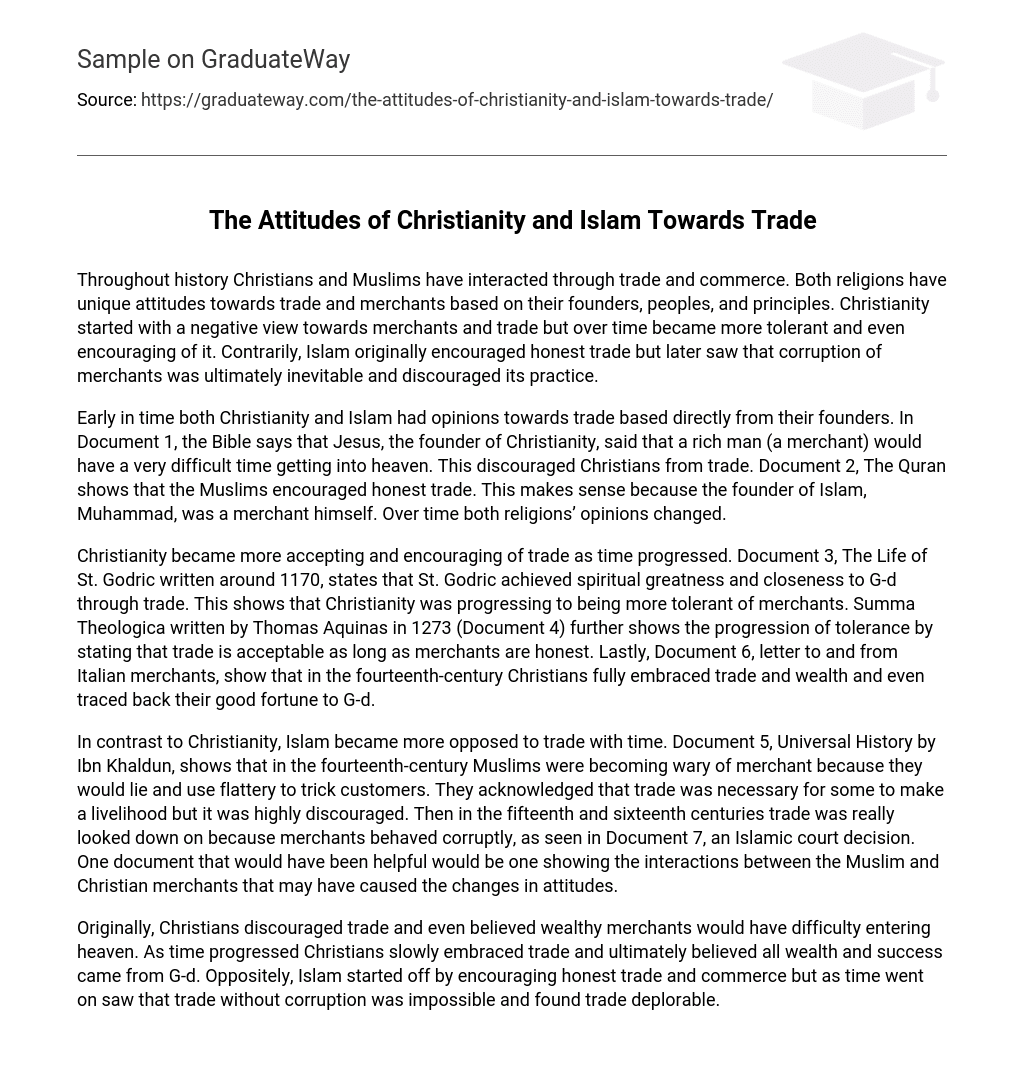Throughout history, Christians and Muslims have engaged in trade and commerce. Both religions have distinct perspectives on trade and merchants, influenced by their founders, followers, and values. Initially, Christianity held a negative perception of merchants and trade, yet gradually became more accepting and even supportive. Conversely, Islam initially promoted fair trade but eventually recognized the inevitability of merchant corruption and discouraged such practices.
Both Christianity and Islam had differing views on trade initially, influenced by their respective founders. In Document 1, the Bible indicates that Jesus, the founder of Christianity, suggested that it would be challenging for a wealthy individual (a merchant) to enter heaven. As a result, Christians were discouraged from engaging in trade. Contrarily, Document 2 reveals that the Quran promoted fair trade within the Muslim community. This aligns with the fact that Muhammad, the founder of Islam, was a former merchant. Eventually, both religions’ viewpoints on trade evolved over time.
As time progressed, Christianity became more accepting and encouraging of trade. In the Life of St. Godric, written around 1170, it is stated that St. Godric attained spiritual greatness and closeness to G-d through engaging in trade. This demonstrates Christianity’s increasing tolerance towards merchants. Similarly, the Summa Theologica, written by Thomas Aquinas in 1273, shows the evolving acceptance by stating that trade is permissible as long as merchants act with honesty. Lastly, in the fourteenth-century letter to and from Italian merchants documented in Document 6, it is evident that Christians fully embraced trade and wealth, attributing their success to divine intervention.
In comparison to Christianity, Islam increasingly disapproved of trade over time. According to Ibn Khaldun’s Universal History (Document 5), Muslims in the 14th century became distrustful of merchants who resorted to deception and flattery to deceive customers. Although some recognized the necessity of trade for livelihood, it was strongly discouraged. Additionally, trade became highly frowned upon in the 15th and 16th centuries due to the corrupt behavior exhibited by merchants, as evident in an Islamic court decision (Document 7). It would have been beneficial to have a document illustrating the interactions between Muslim and Christian merchants, as these interactions may have influenced the shifting attitudes towards trade.
In the beginning, Christians discouraged trade and believed that wealthy merchants would struggle to enter heaven. However, over time, Christians started to accept trade and believed that all wealth and success came from God. On the contrary, Islam initially encouraged honest trade and commerce. But gradually, it became evident that trade without corruption was unattainable, leading to the perception of trade as detestable in Islam.





